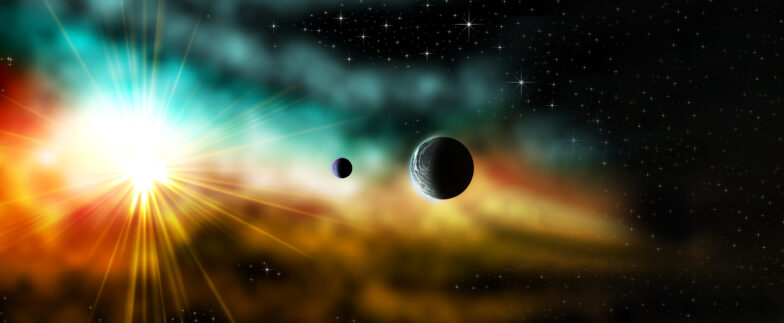Science Journals and Creation Ex Nihilo
What is the most popular verse in the Bible? Most would say John 3:16, but I think a good case exists for Genesis 1:1—“In the beginning God created the heavens and the earth.” Aside from being the first verse in the Bible, it also articulates an important Christian doctrine: creation ex nihilo. God created the entire physical universe out of nothing. Normally, scientific journals do not make explicitly religious statements, so I was surprised to encounter a journal article with the title “Spontaneous Creation of the Universe Ex Nihilo.” I also received a number of requests for me to comment on the article, so here goes.
Brief Scientific Summary of the Article
The authors note that many scientists regard big bang cosmology as incomplete. Rather than a self-contained description, big bang models require scientists to insert or specify a set of initial conditions in order to adequately describe the development of the universe. The paper outlines a model for rectifying this incompleteness by positing a state of “no information” formed from an infinite set of nullifying information elements (NIEs). A transition known as spontaneous symmetry breaking transforms this informationless state to one with some minimal amount of information. The proposed model posits that sometime after the creation of information, the initial conditions required by big bang models were produced. One key feature of this new model is that information ultimately provides the foundation for any of the physical stuff (space, time, matter, and energy) that currently exists.
Our Universe Still Begins to Exist
It warrants mention that this new model explicitly acknowledges that our universe begins to exist, expands from the earliest moments, and operates according to well-defined and unchangeable laws of physics. Whether scientists find some process that explains these features or not, they match the description of the universe given in the Bible. As I articulated before, this provides strong evidence in support of the truth of Christianity.
New Model Still Starts with Something
As I understand the model described in the paper, it fits in the same class as those proposed by Lawrence Krauss and Stephen Hawking. All of these models try to explain how our universe arose from a prior state of nothingness. Both Krauss’s and Hawking’s models posit a quantum vacuum (their version of “nothing”) where fluctuations brought our universe into existence. This model uses the process of spontaneous symmetry breaking to generate information (that ultimately produces physical stuff) from an infinite assembly of NIEs. Thus, each of these models start with something (as opposed to nothing), and that thing brings about a universe by the operation of some set of laws governing the operation of that something.
The Nature of the Thing That Starts Our Universe
Where everyone seems to agree is that the beginning of our universe requires the existence of something that can generate the universe! In order to prevent an infinite regress of things, these models posit something that simply exists (without a beginning). Stated in more philosophical terms, these “somethings” are self-existent because their existence does not depend on anything else. Additionally, these self-existent things also have the capacity to cause other things (like universes) to exist. In other words, they are causal agents. All these models purport to explain the entirety of the universe in a self-contained manner. However, this means they must provide an account of why we can think about a universe that cannot think about us. Even atheistic philosophers acknowledge the incredible difficulty of this task, and some argue that to get consciousness, you must start with consciousness. If so, this means that the something responsible for our universe is a self-existent, causal, conscious agent. Call it what you want, but that is starting to sound a lot like the God described in the Bible.
God Is the Best Explanation
The ideas developed in “Spontaneous Creation of the Universe Ex Nihilo” join a growing class of models seeking to explain the existence of our universe in purely naturalistic terms. All these models share a common theme that requires the existence of an agent that looks a lot like God. Even if one of these models turns out to be correct, it would still buttress the premise that the best explanation for our universe is a personal God who fashioned it for a purpose.






